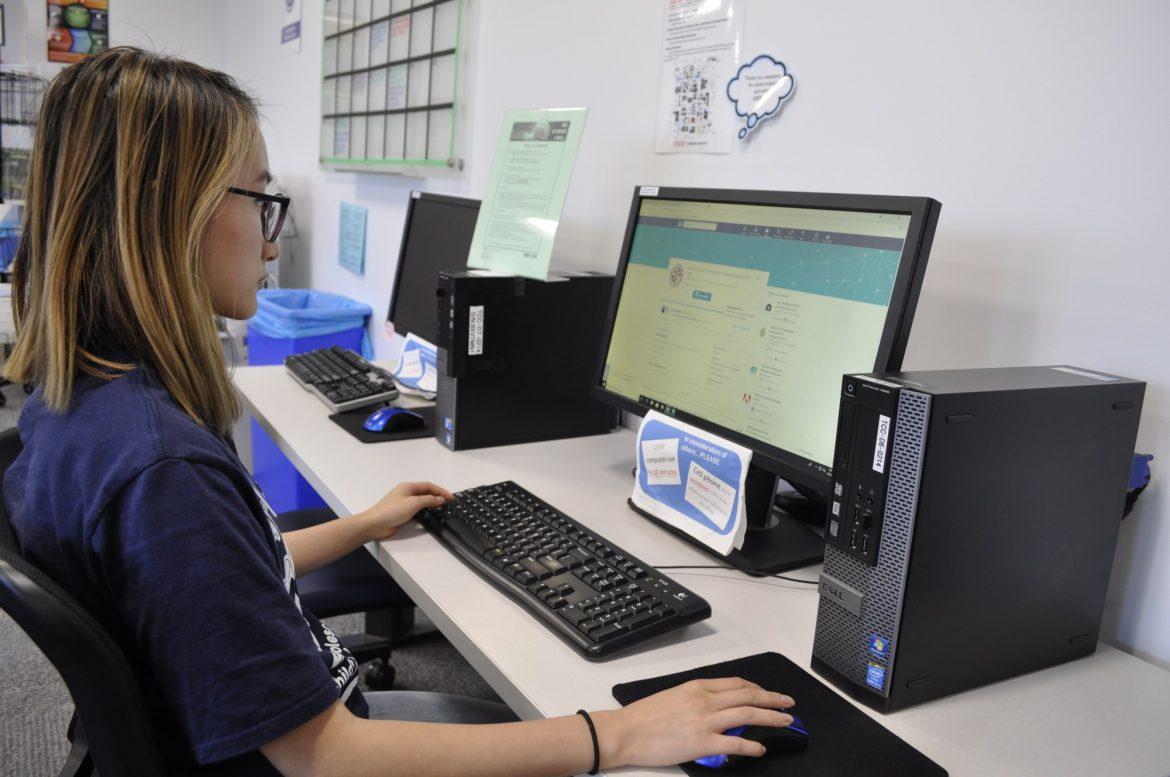“I’ve always dreamt one day I would go to college and land that job I’ve always wanted, live in my own loft in the city and call it home,” Olga Cerda, a 23-year-old psychology major, said. “I am into consumer psychology and I’ve taken many courses on human factors, environmental changes, land development and I can’t help but feel like things in LA are going to get worse.”
Cerda, a graduating senior, shares a common anxiety that the National Center for Education Statistics projects 1.8 million college graduates of 2018 will have to face: are there any jobs?
Results from NACE’s Job Outlook 2018 Spring Update survey show employers will hire 1.3 percent fewer new college graduates compared to 2017. Although the dip is due in part to hiring practices among the insurance and retail industries.
Not all prospects are bleak. In Los Angeles, the unemployment rate as of March 2018 is 4.5 percent which is down from last year’s 4.9 percent according to California’s Employment Development Department.
A study conducted by a team of researchers at CSUN collected data on students entering, graduating and dropping out between 1995 and 2005. The study highlighted how many graduates entered the workforce, how much they were earning and what industries they worked in 2-10 years after graduation.
Within a year of graduation, 71 percent of Bachelor’s degree recipients from CSUN are employed. Five years after graduation, the top industries that CSUN graduates go into are educational services, health care and social assistance, scientific and technical services, finance and insurance, and information.
Sarah Le Long, employment services and event coordinator for the Career Center, encourages students to attend the upcoming Recent Grad & Alumni Job Fair on May 22 to explore careers and network with recruiters.
The Career Center is implementing new technologies to get more students hired, “Scan Factor is a new program that students can use to register their information online and get a personalized QR code,” Le Long said.
“The employer will download the scan factor app and as students scan their QR codes, their resume and information will be readily available for employers to pass on to their colleagues.”
In a sea of experienced applicants, new graduates can leverage their skills and personality to get ahead, “New graduates can stand out against applicants with more experience by showcasing their flexibility, interpersonal and transferable skills,” Le Long said.
The Recent Grad and Alumni Job Fair will host more than 40 employers, “Research the companies, come into the career center and have your resume looked at by one of the counselors,” Le Long said.
In addition to taking advantage of the career center services, students are encouraged to use social media to connect with potential employers, “Follow recruiters and employers on LinkedIn or Twitter, they often post jobs or professional development articles,” Le Long said.
Due to automated recruiting systems, applicants should ensure their resume matches the job description, “Use specific keywords on your resume that translates to the job you’re applying for,” Le Long said.
“Recruiters are using automation systems to vet applicants and if your resume doesn’t include those keywords then it won’t even be considered,” Le Long said.
One of the trends that Le Long has discovered is an increased demand for data analysts, “Across all industries, data analysis and collection is the top position employers are looking to fill,” Le Long said.
Cerda, who has closely monitored consumer trends in Los Angeles, is hesitant about her future, “I feel like unless you landed that $130,000 salary job, you’re stuck struggling to make ends meet, living in someone’s garage or with tons of roommates,” Cerda said.
“It’s a lot of worries that I feel many millennials are facing here in LA, I believe something needs to be done about it because we are being affected the most,” Cerda said.






